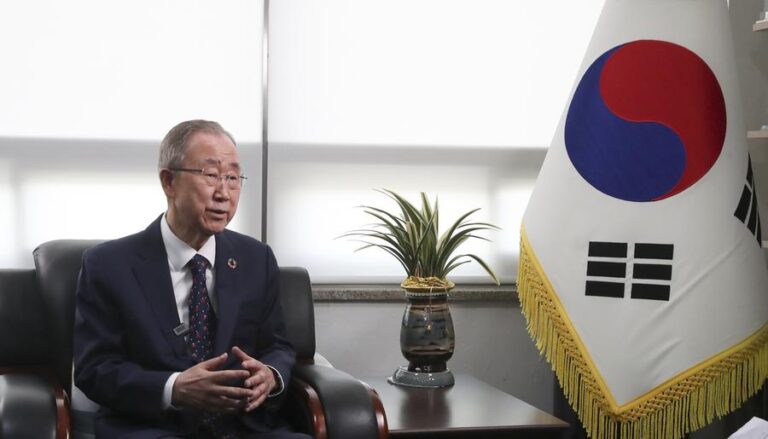Ban Ki-moon warned that rising unilateralism and protectionism are undermining the spirit of international cooperation that underpins the United Nations, saying that China can play an “independent and constructive” role in defending multilateralism and advancing global governance reform.
SEOUL, Oct. 26 (Xinhua) — The Asia-Pacific Economic Cooperation (APEC) should lead economic cooperation and shared prosperity in the region by upholding multilateralism and working together on climate action, supply chain stability and digital standards, Ban Ki-moon, chairman of the Boao Forum for Asia and former UN secretary-general, has said.
In a recent interview with Xinhua ahead of the 32nd APEC Economic Leaders’ Meeting in Gyeongju running from Friday to Saturday, Ban expressed hope that the gathering would produce practical, forward-looking results and inject fresh momentum into global development and cooperation. It marks the first time in 20 years that South Korea is hosting the meeting, following the 2005 session in the southeastern port city of Busan.
Founded in 1989, APEC has served as an important platform for regional economic cooperation, promoting free and open trade and investment, empowering developing economies and supporting sustainable growth, Ban said, warning that multilateralism, essential for building a more peaceful, just and sustainable future, is “under more and more pressure.”
Ban said Chinese President Xi Jinping’s Global Governance Initiative, proposed at the Shanghai Cooperation Organization summit in Tianjin this year, came at the right moment, noting that the initiative upholds fairness, inclusiveness and respect for sovereignty, promotes multipolarity and partnerships, and highlights cooperation on global challenges such as climate change, food security, digital transformation and public health. It also brings political energy to the Global South, he added.
As the world celebrates the 80th anniversary of the United Nations this year, Ban said the initiative complements the UN80 Initiative. Combining the two, he said, could help strengthen the legitimacy of the multilateral system, better mobilize resources, technology and political will, and bridge the gap between developed and developing countries to build a fairer and more responsive governance system.
Ban warned that rising unilateralism and protectionism are undermining the spirit of international cooperation that underpins the United Nations, saying that China can play an “independent and constructive” role in defending multilateralism and advancing global governance reform.
As a permanent member of the UN Security Council and the world’s second-largest economy, China has acted as a bridge through promoting South-South cooperation, advancing the Belt and Road Initiative and actively participating in peacekeeping missions, he said.
These efforts, Ban added, have amplified the voice of the Global South and made global governance more representative.
He said China’s continued investment in renewable energy, technological innovation and public health cooperation has enabled the provision of global public goods.
China’s leadership in climate action, digital governance and public health demonstrates the truth that only by working together can the world overcome challenges, he added. ■

